
About
Curators
One of the early ideas for how to spend Agnes Wahl Nieman’s bequest was to establish a collection of microfilms of current newspapers at Harvard. Since the person running the foundation would also be responsible for this collection, the term “curator” was chosen as the appropriate job title. The microfilm collection never came about, but the job title stuck. Read James B. Conant’s reflections of the origins of the term in You’re a curator.
Archibald MacLeish
1938 - 1939
“So the man who runs Nieman Foundation is the curator of a flock of journalists, now foreign as well as domestic! And the thing has worked.” So said MacLeish, the first Nieman curator, in the book Archibald MacLeish: Reflections. As the first curator, he helped shape the program as it continues today. He was enamored of the idea of turning “15 youngsters loose in the university” as one of the best ways to immerse journalists in a year of give and take with Harvard’s greatest scholars. After leaving as curator after one year to become the Librarian of Congress, he continued to write poems, plays, and articles all the while receiving numerous awards for his work. His awards include three Pulitzer Prizes, a Tony Award, an Academy Award for a documentary on Eleanor Roosevelt, and the Presidential Medal of Freedom. He remained a great friend of the Nieman Foundation throughout his long life. He died in Boston in 1982 at the age of 99.
Louis M. Lyons, NF '39
1939 - 1964
In 1938, Louis Lyons was accepted into the first class of fellows at the Nieman Foundation and when Archibald MacLeish left as curator to become Librarian of Congress in 1939, Lyons was selected as his successor. As a journalist with The Boston Globe, a news commentator on WGBH television, and curator of the Nieman Foundation, Lyons was an important public figure in the New England media for over 50 years. As curator, he diversified the class of fellows to include women, minorities, and international fellows, and expanded its scope to include all major media. A forceful advocate for freedom of the press he was recognized with the George Foster Peabody Award for reporting by a local station; the Richard Lauterbach Award for “substantial contributions in the field of civil liberties” in 1958; the Freedom Foundation Medal in 1959; and the Elijah Parish Lovejoy Award in 1963. Mr. Lyons died April 11, 1982, at the age of 85. For Lyons’s personal account of the early Nieman years, see Harvard Meets the Press.
Dwight E. Sargent, NF '51
1964 - 1972
Born in 1917, Dwight Sargent graduated in 1939 from Colby College in Waterville, Maine, and served in Europe during World War II. He worked for The Portland Press Herald in Maine and The Standard-Times of New Bedford, Massachusetts, before becoming a longtime editorial writer for The New York Herald Tribune. Sargent was a Nieman Fellow in 1951 and became the Nieman Foundation curator in 1964. Recognizing that additional resources were needed to keep the program vital and competitive, Sargent was the first in a succession of curators to raise money. During his eight-year tenure, he raised $1.2 million for the foundation. After stepping down from his Nieman post in 1972, Sargent became president of the Freedom of Information Foundation at the University of Missouri and editorial page editor at The Boston Herald American. In 1978, he was appointed national editorial writer for Hearst Newspapers. He died in 2002 at the age of 85.
James C. Thomson Jr.
1972 - 1984
James C. Thomson Jr. was born in 1931 to missionary parents and grew up in Nanjing, China. He graduated from Yale in 1953 and received a Ph.D. in history from Harvard in 1961. Thomson entered government service in 1959 and served in both the Kennedy and Johnson administrations. In 1966 he resigned from public service in protest of the Vietnam War and returned to Harvard to teach. In April 1968, he published the article “How Could Vietnam Happen?” in The Atlantic Monthly. The story examined and condemned American involvement in Vietnam and won a major award from the Overseas Press Club. In 1972 Thomson was named curator of the Nieman Foundation. During his tenure, he broadened the program to include more minorities, women and journalists from small news organizations and broadcasting. In 1979, he enabled the foundation to acquire the Walter Lippmann House. Thomson remained curator until 1984, when he moved to Boston University to focus on the history of journalistic reporting on the Chinese and Vietnamese revolutions. He died in 2002, in Boston, at the age of 70.
Howard Simons, NF '59
1984 - 1989
From his obituary in The Boston Globe, June 14, 1989: Mr. Simons joined the [Washington] Post in 1961 as a science writer. He became assistant managing editor in 1966 and deputy managing editor in 1968, leaving the paper for Harvard in 1984, after 13 years as managing editor. He directed coverage of the Watergate scandal, for which the Post received a Pulitzer Prize for public service in 1974. “He was the quintessential nurturer of talent,” Derek Bok, president of Harvard, said of Mr. Simons. “He chastised those who settled for second best, praised those who pursued excellence and inspired virtually every young journalist with whom he came in contact.”
Bill Kovach, NF '89
1989 - 2000
William Kovach began his long and distinguished journalism career in his home state of Tennessee before accepting a journalism fellowship at Stanford. He later worked at The New York Times, where he became Washington bureau chief, and as editor of The Atlanta Journal-Constitution before joining the Nieman Class of 1989. Directly after his fellowship, he became curator of the Nieman Foundation. During his years as curator, Kovach lectured widely on the emerging free press in former Eastern Bloc countries and the developing world, and the changing role of newspapers. As an editor, Kovach supervised reporting projects that won four Pulitzer Prizes and personally won a number of journalism awards and honors. He is the founding chairman and acting director of the Committee of Concerned Journalists; Senior Counselor to the Project for Excellence in Journalism; and board member for several leading journalism organizations. In a 2001 interview, he commented on his profession stating, “It’s the nearest thing I have to religion…The relationship between journalism and citizen is the most important job there is.” For Kovach’s reflections on his tenure as curator, see Taking Back Our Language.
Bob Giles, NF '66
2000 - 2011
Robert Giles became the curator of the Nieman Foundation for Journalism at Harvard University in 2000 after working for nearly 40 years in newspapers. Previously, he had been editor and publisher of The Detroit News. From 1977 to 1986, Giles was executive editor and then editor of the Democrat & Chronicle and the Times-Union in Rochester, N.Y. Immediately prior to joining the Nieman Foundation as curator, Giles was a senior vice president of The Freedom Forum, where he served as editor-in-chief of The Freedom Forum’s Media Studies Journal. His career began in 1958 at the Akron Beacon Journal. As managing editor in 1970, he directed coverage of the campus shootings at Kent State, for which the newspaper won the Pulitzer Prize. Also under his editorship, The Detroit News won a Pulitzer in 1994 for the paper’s disclosures of a scandal in the Michigan House Fiscal Agency. Giles also won the Scripps-Howard Foundation’s Distinguished Journalism Citation in 1978 for “outstanding public service in the cause of the First Amendment.” He also is an eight-time Pulitzer Prize juror and is the author of “Newsroom Management: A Guide to Theory and Practice.” A graduate of DePauw University and the Columbia Graduate School of Journalism, Giles was a Nieman Fellow in 1966. He received an honorary doctorate in journalism from DePauw in 1996. Learn about the early history of the Nieman Foundation in this essay written by Giles on the occasion of the foundation’s 70th anniversary. For Giles’s reflections on his tenure as curator, see A Gift Beyond Measure.
Ann Marie Lipinski, NF '90
2011 - present
Ann Marie Lipinski is a Pulitzer Prize-winning journalist and curator of the Nieman Foundation for Journalism at Harvard University, home to an international fellowship program and an innovative group of publications about journalism, including Nieman Lab, Nieman Reports and Nieman Storyboard. Before coming to Harvard, Lipinski served as senior lecturer and vice president for civic engagement at the University of Chicago. Prior to that, she was the editor-in-chief and senior vice president of the Chicago Tribune, a post she held for nearly eight years following assignments as managing editor, metropolitan editor and investigations editor. As a reporter at the Tribune, Lipinski was awarded a Pulitzer Prize for investigative journalism for stories she wrote with two other reporters on government corruption in Chicago. While editor of the paper, she oversaw work that won Pulitzers in international reporting, feature writing, editorial writing, investigative reporting and explanatory journalism. Lipinski is a trustee of the Poynter Institute and a past co-chair of the Pulitzer Prize board. She is a fellow of the American Academy of Arts & Sciences and a 1990 Nieman Fellow. @AMLwhere
Read Lipinski’s comments about how the Nieman Foundation and Harvard continue to educate persons deemed specially qualified for journalism – and why that matters in The Meaning of the Nieman.

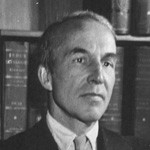 “So the man who runs Nieman Foundation is the curator of a flock of journalists, now foreign as well as domestic! And the thing has worked.” So said MacLeish, the first Nieman curator, in the book Archibald MacLeish: Reflections. As the first curator, he helped shape the program as it continues today. He was enamored of the idea of turning “15 youngsters loose in the university” as one of the best ways to immerse journalists in a year of give and take with Harvard’s greatest scholars. After leaving as curator after one year to become the Librarian of Congress, he continued to write poems, plays, and articles all the while receiving numerous awards for his work. His awards include three Pulitzer Prizes, a Tony Award, an Academy Award for a documentary on Eleanor Roosevelt, and the Presidential Medal of Freedom. He remained a great friend of the Nieman Foundation throughout his long life. He died in Boston in 1982 at the age of 99.
“So the man who runs Nieman Foundation is the curator of a flock of journalists, now foreign as well as domestic! And the thing has worked.” So said MacLeish, the first Nieman curator, in the book Archibald MacLeish: Reflections. As the first curator, he helped shape the program as it continues today. He was enamored of the idea of turning “15 youngsters loose in the university” as one of the best ways to immerse journalists in a year of give and take with Harvard’s greatest scholars. After leaving as curator after one year to become the Librarian of Congress, he continued to write poems, plays, and articles all the while receiving numerous awards for his work. His awards include three Pulitzer Prizes, a Tony Award, an Academy Award for a documentary on Eleanor Roosevelt, and the Presidential Medal of Freedom. He remained a great friend of the Nieman Foundation throughout his long life. He died in Boston in 1982 at the age of 99.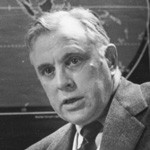 In 1938, Louis Lyons was accepted into the first class of fellows at the Nieman Foundation and when Archibald MacLeish left as curator to become Librarian of Congress in 1939, Lyons was selected as his successor. As a journalist with The Boston Globe, a news commentator on WGBH television, and curator of the Nieman Foundation, Lyons was an important public figure in the New England media for over 50 years. As curator, he diversified the class of fellows to include women, minorities, and international fellows, and expanded its scope to include all major media. A forceful advocate for freedom of the press he was recognized with the George Foster Peabody Award for reporting by a local station; the Richard Lauterbach Award for “substantial contributions in the field of civil liberties” in 1958; the Freedom Foundation Medal in 1959; and the Elijah Parish Lovejoy Award in 1963. Mr. Lyons died April 11, 1982, at the age of 85. For Lyons’s personal account of the early Nieman years, see
In 1938, Louis Lyons was accepted into the first class of fellows at the Nieman Foundation and when Archibald MacLeish left as curator to become Librarian of Congress in 1939, Lyons was selected as his successor. As a journalist with The Boston Globe, a news commentator on WGBH television, and curator of the Nieman Foundation, Lyons was an important public figure in the New England media for over 50 years. As curator, he diversified the class of fellows to include women, minorities, and international fellows, and expanded its scope to include all major media. A forceful advocate for freedom of the press he was recognized with the George Foster Peabody Award for reporting by a local station; the Richard Lauterbach Award for “substantial contributions in the field of civil liberties” in 1958; the Freedom Foundation Medal in 1959; and the Elijah Parish Lovejoy Award in 1963. Mr. Lyons died April 11, 1982, at the age of 85. For Lyons’s personal account of the early Nieman years, see 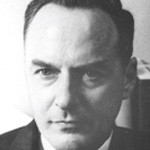 Born in 1917, Dwight Sargent graduated in 1939 from Colby College in Waterville, Maine, and served in Europe during World War II. He worked for The Portland Press Herald in Maine and The Standard-Times of New Bedford, Massachusetts, before becoming a longtime editorial writer for The New York Herald Tribune. Sargent was a Nieman Fellow in 1951 and became the Nieman Foundation curator in 1964. Recognizing that additional resources were needed to keep the program vital and competitive, Sargent was the first in a succession of curators to raise money. During his eight-year tenure, he raised $1.2 million for the foundation. After stepping down from his Nieman post in 1972, Sargent became president of the Freedom of Information Foundation at the University of Missouri and editorial page editor at The Boston Herald American. In 1978, he was appointed national editorial writer for Hearst Newspapers. He died in 2002 at the age of 85.
Born in 1917, Dwight Sargent graduated in 1939 from Colby College in Waterville, Maine, and served in Europe during World War II. He worked for The Portland Press Herald in Maine and The Standard-Times of New Bedford, Massachusetts, before becoming a longtime editorial writer for The New York Herald Tribune. Sargent was a Nieman Fellow in 1951 and became the Nieman Foundation curator in 1964. Recognizing that additional resources were needed to keep the program vital and competitive, Sargent was the first in a succession of curators to raise money. During his eight-year tenure, he raised $1.2 million for the foundation. After stepping down from his Nieman post in 1972, Sargent became president of the Freedom of Information Foundation at the University of Missouri and editorial page editor at The Boston Herald American. In 1978, he was appointed national editorial writer for Hearst Newspapers. He died in 2002 at the age of 85.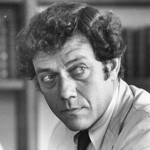 James C. Thomson Jr. was born in 1931 to missionary parents and grew up in Nanjing, China. He graduated from Yale in 1953 and received a Ph.D. in history from Harvard in 1961. Thomson entered government service in 1959 and served in both the Kennedy and Johnson administrations. In 1966 he resigned from public service in protest of the Vietnam War and returned to Harvard to teach. In April 1968, he published the article “How Could Vietnam Happen?” in The Atlantic Monthly. The story examined and condemned American involvement in Vietnam and won a major award from the Overseas Press Club. In 1972 Thomson was named curator of the Nieman Foundation. During his tenure, he broadened the program to include more minorities, women and journalists from small news organizations and broadcasting. In 1979, he enabled the foundation to acquire the Walter Lippmann House. Thomson remained curator until 1984, when he moved to Boston University to focus on the history of journalistic reporting on the Chinese and Vietnamese revolutions. He died in 2002, in Boston, at the age of 70.
James C. Thomson Jr. was born in 1931 to missionary parents and grew up in Nanjing, China. He graduated from Yale in 1953 and received a Ph.D. in history from Harvard in 1961. Thomson entered government service in 1959 and served in both the Kennedy and Johnson administrations. In 1966 he resigned from public service in protest of the Vietnam War and returned to Harvard to teach. In April 1968, he published the article “How Could Vietnam Happen?” in The Atlantic Monthly. The story examined and condemned American involvement in Vietnam and won a major award from the Overseas Press Club. In 1972 Thomson was named curator of the Nieman Foundation. During his tenure, he broadened the program to include more minorities, women and journalists from small news organizations and broadcasting. In 1979, he enabled the foundation to acquire the Walter Lippmann House. Thomson remained curator until 1984, when he moved to Boston University to focus on the history of journalistic reporting on the Chinese and Vietnamese revolutions. He died in 2002, in Boston, at the age of 70.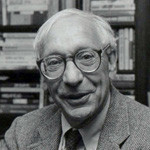 From his obituary in The Boston Globe, June 14, 1989: Mr. Simons joined the [Washington] Post in 1961 as a science writer. He became assistant managing editor in 1966 and deputy managing editor in 1968, leaving the paper for Harvard in 1984, after 13 years as managing editor. He directed coverage of the Watergate scandal, for which the Post received a Pulitzer Prize for public service in 1974. “He was the quintessential nurturer of talent,” Derek Bok, president of Harvard, said of Mr. Simons. “He chastised those who settled for second best, praised those who pursued excellence and inspired virtually every young journalist with whom he came in contact.”
From his obituary in The Boston Globe, June 14, 1989: Mr. Simons joined the [Washington] Post in 1961 as a science writer. He became assistant managing editor in 1966 and deputy managing editor in 1968, leaving the paper for Harvard in 1984, after 13 years as managing editor. He directed coverage of the Watergate scandal, for which the Post received a Pulitzer Prize for public service in 1974. “He was the quintessential nurturer of talent,” Derek Bok, president of Harvard, said of Mr. Simons. “He chastised those who settled for second best, praised those who pursued excellence and inspired virtually every young journalist with whom he came in contact.”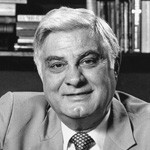 William Kovach began his long and distinguished journalism career in his home state of Tennessee before accepting a journalism fellowship at Stanford. He later worked at The New York Times, where he became Washington bureau chief, and as editor of The Atlanta Journal-Constitution before joining the Nieman Class of 1989. Directly after his fellowship, he became curator of the Nieman Foundation. During his years as curator, Kovach lectured widely on the emerging free press in former Eastern Bloc countries and the developing world, and the changing role of newspapers. As an editor, Kovach supervised reporting projects that won four Pulitzer Prizes and personally won a number of journalism awards and honors. He is the founding chairman and acting director of the Committee of Concerned Journalists; Senior Counselor to the Project for Excellence in Journalism; and board member for several leading journalism organizations. In a 2001 interview, he commented on his profession stating, “It’s the nearest thing I have to religion…The relationship between journalism and citizen is the most important job there is.” For Kovach’s reflections on his tenure as curator, see
William Kovach began his long and distinguished journalism career in his home state of Tennessee before accepting a journalism fellowship at Stanford. He later worked at The New York Times, where he became Washington bureau chief, and as editor of The Atlanta Journal-Constitution before joining the Nieman Class of 1989. Directly after his fellowship, he became curator of the Nieman Foundation. During his years as curator, Kovach lectured widely on the emerging free press in former Eastern Bloc countries and the developing world, and the changing role of newspapers. As an editor, Kovach supervised reporting projects that won four Pulitzer Prizes and personally won a number of journalism awards and honors. He is the founding chairman and acting director of the Committee of Concerned Journalists; Senior Counselor to the Project for Excellence in Journalism; and board member for several leading journalism organizations. In a 2001 interview, he commented on his profession stating, “It’s the nearest thing I have to religion…The relationship between journalism and citizen is the most important job there is.” For Kovach’s reflections on his tenure as curator, see 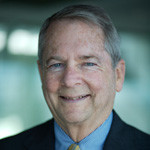 Robert Giles became the curator of the Nieman Foundation for Journalism at Harvard University in 2000 after working for nearly 40 years in newspapers. Previously, he had been editor and publisher of The Detroit News. From 1977 to 1986, Giles was executive editor and then editor of the Democrat & Chronicle and the Times-Union in Rochester, N.Y. Immediately prior to joining the Nieman Foundation as curator, Giles was a senior vice president of The Freedom Forum, where he served as editor-in-chief of The Freedom Forum’s Media Studies Journal. His career began in 1958 at the Akron Beacon Journal. As managing editor in 1970, he directed coverage of the campus shootings at Kent State, for which the newspaper won the Pulitzer Prize. Also under his editorship, The Detroit News won a Pulitzer in 1994 for the paper’s disclosures of a scandal in the Michigan House Fiscal Agency. Giles also won the Scripps-Howard Foundation’s Distinguished Journalism Citation in 1978 for “outstanding public service in the cause of the First Amendment.” He also is an eight-time Pulitzer Prize juror and is the author of “Newsroom Management: A Guide to Theory and Practice.” A graduate of DePauw University and the Columbia Graduate School of Journalism, Giles was a Nieman Fellow in 1966. He received an honorary doctorate in journalism from DePauw in 1996. Learn about
Robert Giles became the curator of the Nieman Foundation for Journalism at Harvard University in 2000 after working for nearly 40 years in newspapers. Previously, he had been editor and publisher of The Detroit News. From 1977 to 1986, Giles was executive editor and then editor of the Democrat & Chronicle and the Times-Union in Rochester, N.Y. Immediately prior to joining the Nieman Foundation as curator, Giles was a senior vice president of The Freedom Forum, where he served as editor-in-chief of The Freedom Forum’s Media Studies Journal. His career began in 1958 at the Akron Beacon Journal. As managing editor in 1970, he directed coverage of the campus shootings at Kent State, for which the newspaper won the Pulitzer Prize. Also under his editorship, The Detroit News won a Pulitzer in 1994 for the paper’s disclosures of a scandal in the Michigan House Fiscal Agency. Giles also won the Scripps-Howard Foundation’s Distinguished Journalism Citation in 1978 for “outstanding public service in the cause of the First Amendment.” He also is an eight-time Pulitzer Prize juror and is the author of “Newsroom Management: A Guide to Theory and Practice.” A graduate of DePauw University and the Columbia Graduate School of Journalism, Giles was a Nieman Fellow in 1966. He received an honorary doctorate in journalism from DePauw in 1996. Learn about 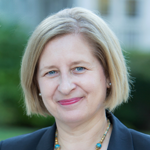 Ann Marie Lipinski is a Pulitzer Prize-winning journalist and curator of the Nieman Foundation for Journalism at Harvard University, home to an international fellowship program and an innovative group of publications about journalism, including Nieman Lab, Nieman Reports and Nieman Storyboard. Before coming to Harvard, Lipinski served as senior lecturer and vice president for civic engagement at the University of Chicago. Prior to that, she was the editor-in-chief and senior vice president of the Chicago Tribune, a post she held for nearly eight years following assignments as managing editor, metropolitan editor and investigations editor. As a reporter at the Tribune, Lipinski was awarded a Pulitzer Prize for investigative journalism for stories she wrote with two other reporters on government corruption in Chicago. While editor of the paper, she oversaw work that won Pulitzers in international reporting, feature writing, editorial writing, investigative reporting and explanatory journalism. Lipinski is a trustee of the Poynter Institute and a past co-chair of the Pulitzer Prize board. She is a fellow of the American Academy of Arts & Sciences and a 1990 Nieman Fellow.
Ann Marie Lipinski is a Pulitzer Prize-winning journalist and curator of the Nieman Foundation for Journalism at Harvard University, home to an international fellowship program and an innovative group of publications about journalism, including Nieman Lab, Nieman Reports and Nieman Storyboard. Before coming to Harvard, Lipinski served as senior lecturer and vice president for civic engagement at the University of Chicago. Prior to that, she was the editor-in-chief and senior vice president of the Chicago Tribune, a post she held for nearly eight years following assignments as managing editor, metropolitan editor and investigations editor. As a reporter at the Tribune, Lipinski was awarded a Pulitzer Prize for investigative journalism for stories she wrote with two other reporters on government corruption in Chicago. While editor of the paper, she oversaw work that won Pulitzers in international reporting, feature writing, editorial writing, investigative reporting and explanatory journalism. Lipinski is a trustee of the Poynter Institute and a past co-chair of the Pulitzer Prize board. She is a fellow of the American Academy of Arts & Sciences and a 1990 Nieman Fellow.